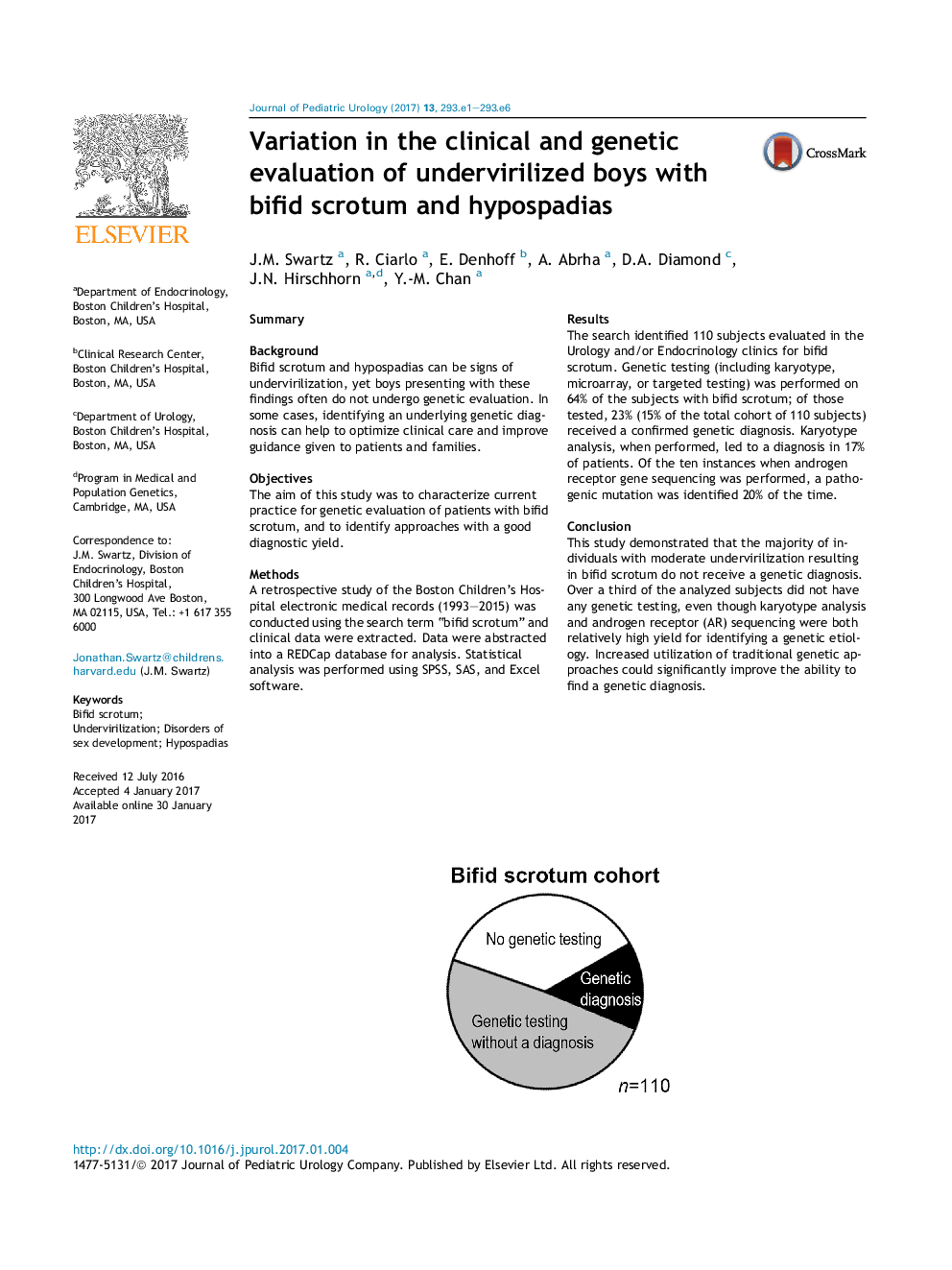| کد مقاله | کد نشریه | سال انتشار | مقاله انگلیسی | نسخه تمام متن |
|---|---|---|---|---|
| 5718608 | 1411254 | 2017 | 6 صفحه PDF | دانلود رایگان |
SummaryBackgroundBifid scrotum and hypospadias can be signs of undervirilization, yet boys presenting with these findings often do not undergo genetic evaluation. In some cases, identifying an underlying genetic diagnosis can help to optimize clinical care and improve guidance given to patients and families.ObjectivesThe aim of this study was to characterize current practice for genetic evaluation of patients with bifid scrotum, and to identify approaches with a good diagnostic yield.MethodsA retrospective study of the Boston Children's Hospital electronic medical records (1993-2015) was conducted using the search term “bifid scrotum” and clinical data were extracted. Data were abstracted into a REDCap database for analysis. Statistical analysis was performed using SPSS, SAS, and Excel software.ResultsThe search identified 110 subjects evaluated in the Urology and/or Endocrinology clinics for bifid scrotum. Genetic testing (including karyotype, microarray, or targeted testing) was performed on 64% of the subjects with bifid scrotum; of those tested, 23% (15% of the total cohort of 110 subjects) received a confirmed genetic diagnosis. Karyotype analysis, when performed, led to a diagnosis in 17% of patients. Of the ten instances when androgen receptor gene sequencing was performed, a pathogenic mutation was identified 20% of the time.ConclusionThis study demonstrated that the majority of individuals with moderate undervirilization resulting in bifid scrotum do not receive a genetic diagnosis. Over a third of the analyzed subjects did not have any genetic testing, even though karyotype analysis and androgen receptor (AR) sequencing were both relatively high yield for identifying a genetic etiology. Increased utilization of traditional genetic approaches could significantly improve the ability to find a genetic diagnosis.129
Journal: Journal of Pediatric Urology - Volume 13, Issue 3, June 2017, Pages 293.e1-293.e6
